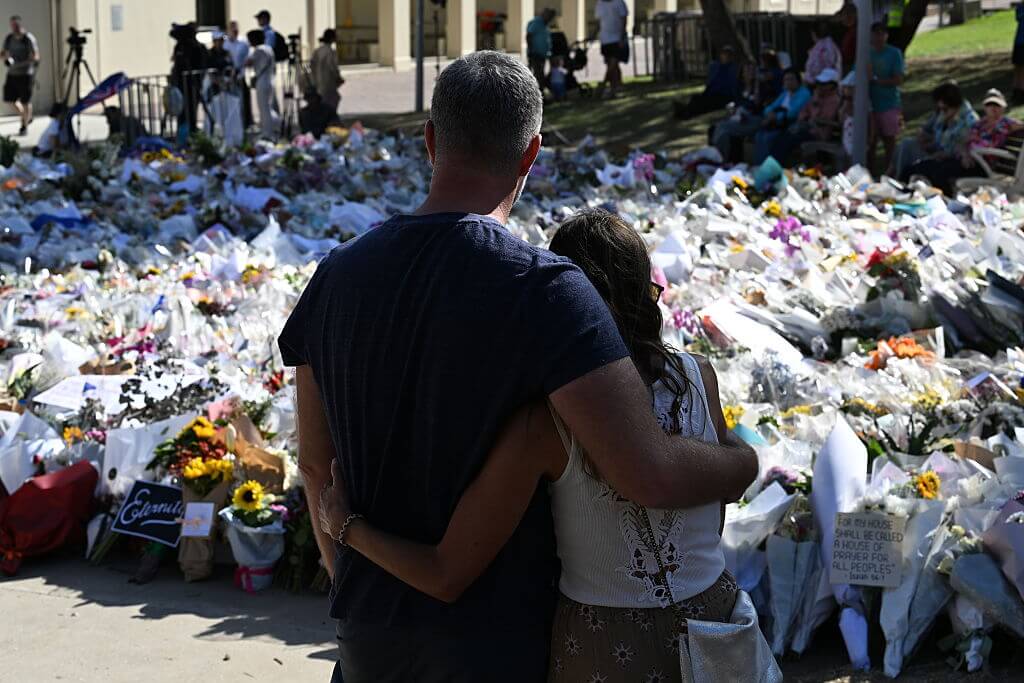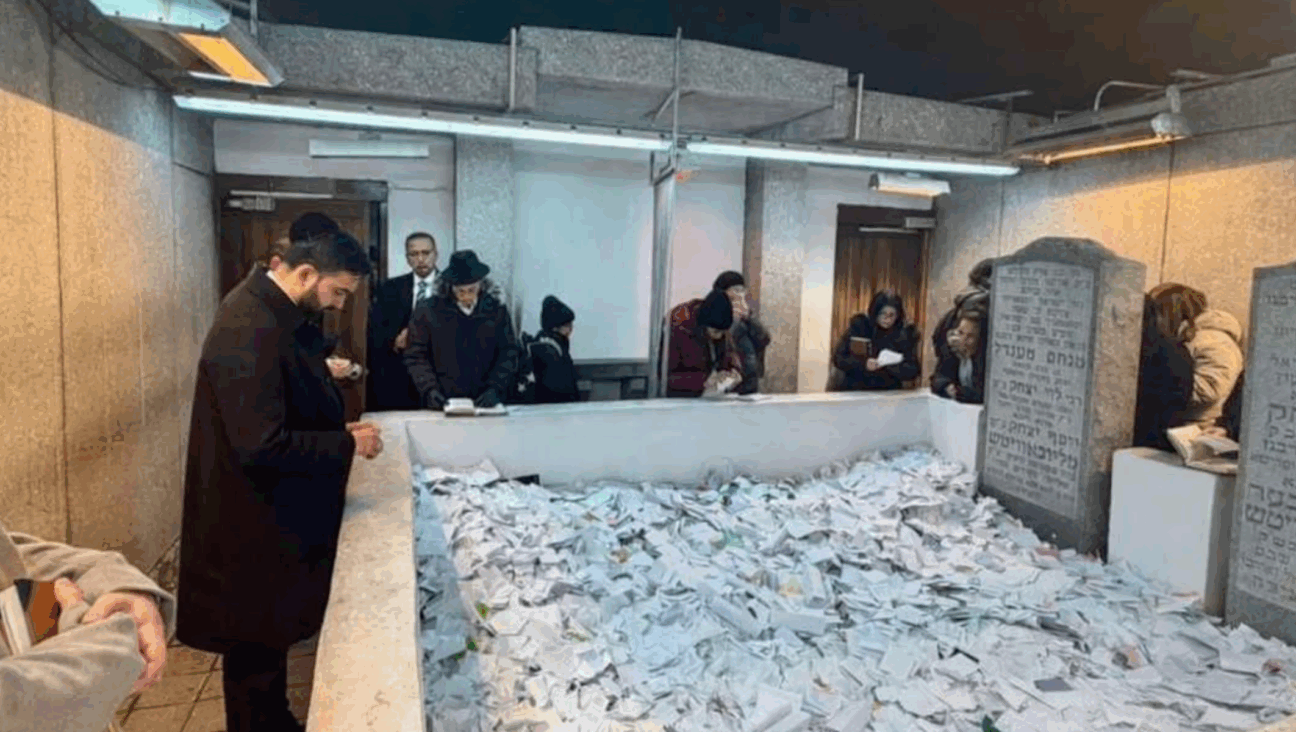State Department Hawk Under Fire in Intelligence Flap Over Syria
The uproar over the administration’s handling of intelligence on Iraq is prompting the intelligence community to try to regain the upper hand over the more hawkish elements in disputes over other “rogue” countries, analysts said.
Last week, several media outlets reported that objections from the CIA and other agencies had blocked planned congressional testimony by Undersecretary of State John Bolton about Syria’s efforts to develop unconventional weapons. The hearing has been postponed to September.
Interviews with sources in Congress, the administration and the intelligence community suggest that Bolton, a leading administration neoconservative and one of the most hawkish figures in the State Department, is emerging as a lightning rod for disputes over the use of intelligence to evaluate the intentions of Syria and other rogue states.
A Bolton spokeswoman, Carey Barnett, told the Forward her boss’s testimony had been postponed because he had to attend a last-minute White House meeting at the time of the scheduled hearing.
No further date could be found before the summer recess, and the hearing was now scheduled for September 16, she added.
However, published reports in recent days, based on statements by government officials, suggest that the postponement was due, at least partly, to expectations that Bolton would use his testimony to claim that Syria’s advancement in developing chemical and biological weapons posed a threat to stability in the Middle East.
This week, sources inside and outside the administration were pointing to the postponement as a rare victory for intelligence analysts against ideologues in the administration.
“The [intelligence] analysts have stiffened as a result of the Niger uranium controversy, and it will be difficult for the hardliners like Bolton to roll them in the immediate future,” said Vincent Cannistraro, a former head of counterterrorism at the CIA.
The CIA’s objections to the testimony, first reported by the Lebanese daily Al Safir and by Knight Ridder newspapers, are said to have been spelled out informally in a 38-page memorandum.
Barnett, Bolton’s aide, denied the existence of such a memo, noting that the testimony had followed the normal stages of interagency consultation and received comments from various relevant agencies, including the CIA.
“We had comments, some in favor and some not,” she told the Forward, adding that no one “blocked” the testimony.
However, the existence of the memo was confirmed to the Forward by a well-placed intelligence source, with two congressional sources adding that the reports on it were “probably true.”
Barnett said Bolton did not plan to speak publicly about Syria’s weapons programs before the planned hearing, which she said is likely to be updated in the interval.
The Democrats, trying to capitalize on the intelligence flap, have not hesitated to use the incident to step up their attacks.
Senator Joseph Biden told NBC’s Tim Russert Sunday that when Bolton, “one of the neocons in the administration,” was about to testify, “The CIA said, ‘Whoa, whoa, whoa, don’t go say that, don’t go say that.’ And he didn’t come up. They’re still trying to hype this stuff.”
Bolton, who is undersecretary of state for arms control and international security, is known to be close to hardliners in the vice president’s office and at the Pentagon.
During the first Bush administration, while serving as assistant secretary of state for international organizations, Bolton oversaw the successful American drive to overturn the United Nations’s “Zionist is racism” resolution.
In a May 2002 speech, he charged that Cuba had a biological weapons program, a claim dismissed by other administration officials and not repeated by the administration since.
Christian Westermann, an official with State Department’s intelligence bureau, recently told the House and Senate intelligence committees that the assertion on Cuba was not supported by available intelligence data, congressional officials said.
Several intelligence sources told the Forward that Bolton has been at loggerheads with the State Department’s intelligence unit for a while because of his hawkish comments not only on Cuba, but also on Libya, Iran and Syria.
One source said Bolton did not have a good relationship with the CIA head of counter-proliferation, Alan Foley, whose name recently surfaced in press accounts about the inclusion of controversial information about Niger in the president’s State of the Union address.
Foley was said to have objected to the inclusion of the allegations that Iraq sought to buy uranium from Niger for its nuclear program. Foley eventually accepted the inclusion on the condition that they be sourced to British intelligence.
The State Department’s intelligence unit also expressed serious doubts about the Niger information, which has proven to be largely unsubstantiated and helped fuel speculation that the administration had exaggerated Iraq’s weapons of mass destruction threat to garner support for the war.
The record suggests that Bolton has indeed sounded more alarmist than the intelligence community about Syria over the past several months.
He has described Damascus’s chemical and biological weapons as a more significant problem than a declassified American intelligence assessment that covered the first six months of 2002.
In testimony last month before the House International Relations Committee, Bolton offered a darker view of Syria’s weapons program than the CIA in a report to Congress two months earlier. Bolton said American officials were “looking at Syria’s nuclear program with growing concern and continue to monitor it for any signs of nuclear weapons intent.”
The CIA report to Congress in April said only: “In principle, broader access to Russian expertise provides opportunities for Syria to expand its indigenous capabilities, should it decide to pursue nuclear weapons.”
Bolton also said that American officials “know that Syria is pursuing the development of biological weapons.” The CIA report, by contrast, said only that it was “highly probable” that Syria is also continuing to develop an “offensive biological weapons capability.”
Last week’s postponed testimony was part of a series of hearings over the Syria Accountability and Lebanese Sovereignty Restoration Act, a bipartisan bill introduced in the House last year by Eliot Engel, a New York Democrat, and Ileana Ros-Lehtinen, a Florida Republican. The bill would allow the president to impose economic sanctions on Syria if it continues to sponsor terrorism, pursue weapons of mass destruction and occupy Lebanon.
The bill has garnered majorities in both chambers as co-sponsors.
“We are disappointed the administration did not send anyone to the hearing, but we are certain the bill will eventually be voted on,” Engel told the Forward.
One of Engel’s top aides added that speculation about the dispute between Bolton and the CIA would not affect the debate over the bill.
Stepping up their pressure on Syria, Engel and Ros-Lehtinen wrote to Attorney General John Ashcroft last week to call for the extradition of the Damascus-based secretary-general of Palestinian Islamic Jihad, Ramadan Shallah, who was indicted by a federal court in February on terrorism-related charges.
In their letter, the representatives charged that the administration had denied knowing Shallah’s whereabouts but that recent press reports made it “obvious” he is in Damascus.
Damascus, for its part, is taking a series of steps to try to better its image while the administration struggles with its own policy.
It has forced Palestinian groups based in Damascus to lower their profile and has made peace overtures to Israel. It has also withdrawn some troops from Lebanon, ordered a loosening of the ruling Ba’ath Party’s grip on government and released political prisoners.
American officials have described the efforts as insufficient.
On Monday, President Bush again warned Syria and Iran.
“Today, Syria and Iran continue to harbor and assist terrorists,” the president said during a press briefing with visiting Italian Prime Minister Silvio Berlusconi. “This behavior is completely unacceptable, and states that support terror will be held accountable.”















